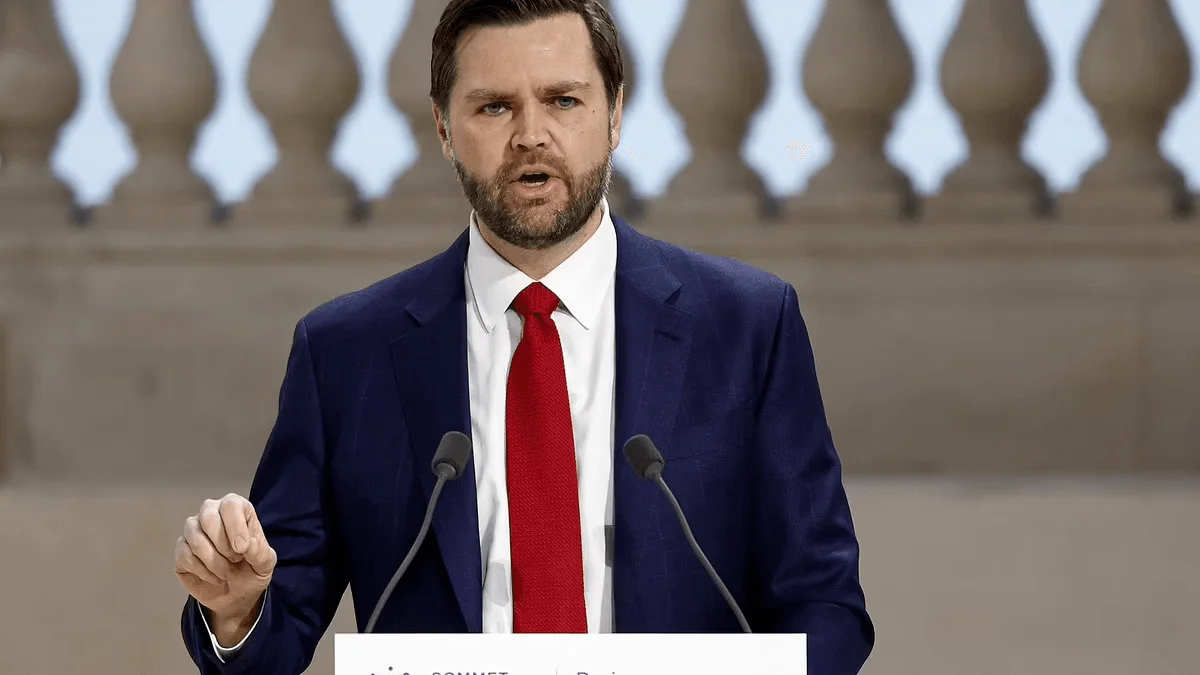Necessary Always Active
Necessary cookies are required to enable the basic features of this site, such as providing secure log-in or adjusting your consent preferences. These cookies do not store any personally identifiable data.
|
||||||
|
||||||
|
||||||
|

US Vice President JD Vance said that the Trump administration is prioritizing AI de-regulation, innovation and protection of free speech. Speaking at the Paris AI Summit, Vance said the US defends American AI and is against any efforts to weaponize important technologies, CNBC reported.
From the onset, JD Vance AI speech set the tone of leveraging the AI opportunity. “I’m not here this morning to talk about AI safety, which was the title of the conference a couple of years ago. I’m here to talk about AI opportunities,” the VP said.
JD Vance told the convening in Paris that the current US administration views AI as a revolutionary technology that’s capable of transforming different sectors.
“The Trump administration, believes that AI will have countless revolutionary applications in economic innovation, job creation, national security, health care, free expression and beyond, and to restrict its development now will not only unfairly benefit incumbents in this space, it would mean paralysing one of the most promising technologies we have seen in generations,” Vance added.
In his speech to summit attendees, JD Vance said that the US remains committed to protect American AI and chip technologies. The Vice President spoke just a week after OpenAI lodged accusations against Chinese AI startup DeepSeek claiming that the latter illegally used its proprietary AI models to create a competing product. OpenAI’s claims emphasize legal and ethical considerations that are critical and relevant to AI model security and business.
“This administration will ensure that American AI technology continues to be the gold standard worldwide, and we are the partner of choice for other foreign countries and certainly businesses as they expand their own use of AI,” Vance said.
JD Vance’s speech accused some governments of accessing American AI illegally to enhance their military capabilities. Without mentioning DeepSeek by name, Vance took a swipe at highly subsidized technologies, saying that pursuing partnerships with such them could mean working with regimes that infiltrate and seize other country’s information.
“Some authoritarian regimes have stolen and used AI to strengthen their military intelligence and surveillance capabilities, capture foreign data, and create propaganda to undermine other nations’ national security. We’re all familiar with cheap tech in the marketplace that’s been heavily subsidized and exported by authoritarian regimes,” the US VP added.
He said the Trump administration will be firm to thwart any illegal access or misuse of American AI and chips by non-allies.
“I want to be clear, this administration will block such efforts, full stop. We will safeguard American AI and chip technologies from theft and misuse, work with our allies and partners to strengthen and extend these protections and close pathways to adversaries attaining AI capabilities that threaten all of our people,” Vance said in his address to the AI Action Summit in Paris.
JD Vance positioned the US as a leader in AI in his speech and expressed readiness to collaborate with EU countries in the AI race.
“Just because we’re the leader doesn’t mean we want to or need to go it alone. America wants to partner with all of you, and we want to embark on the AI revolution before us with the spirit of openness and collaboration,” Vance said.
In his speech, the US Vice President discouraged Europe from focusing too much on AI regulation, asking EU allies to embrace the growth potential that the technology presents. He said his country wants its EU allies to cultivate a more favorable attitude towards AI.
“But to create that kind of trust, we need international regulatory regimes that fosters the creation of AI technology rather than strangles it, and we need our European friends in particular to look to this new frontier with optimism rather than trepidation,” he added.
The EU has taken a stringent regulatory approach towards AI technologies. Last year, the region passed the EU AI Act, whose enforcement commenced early this month.